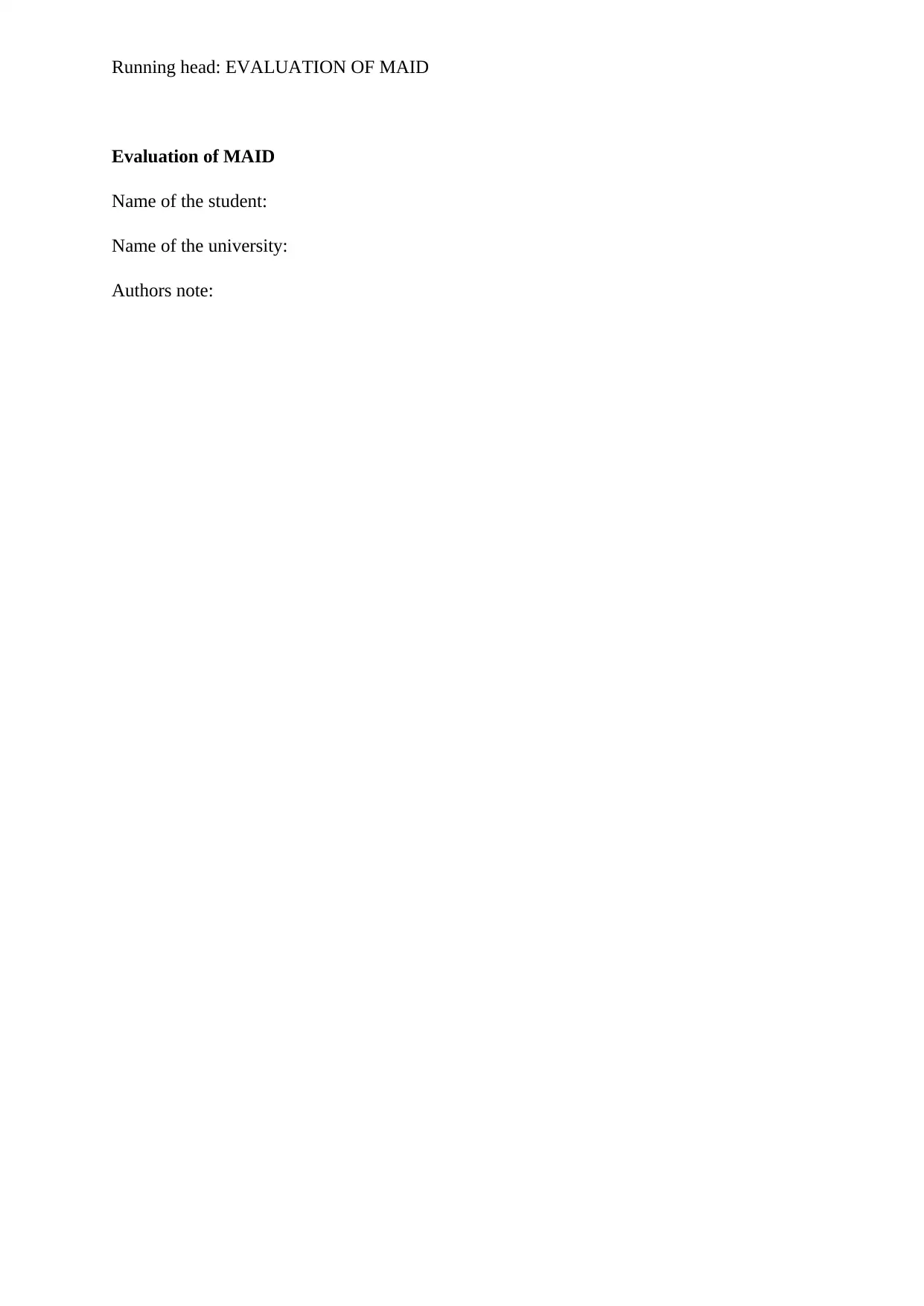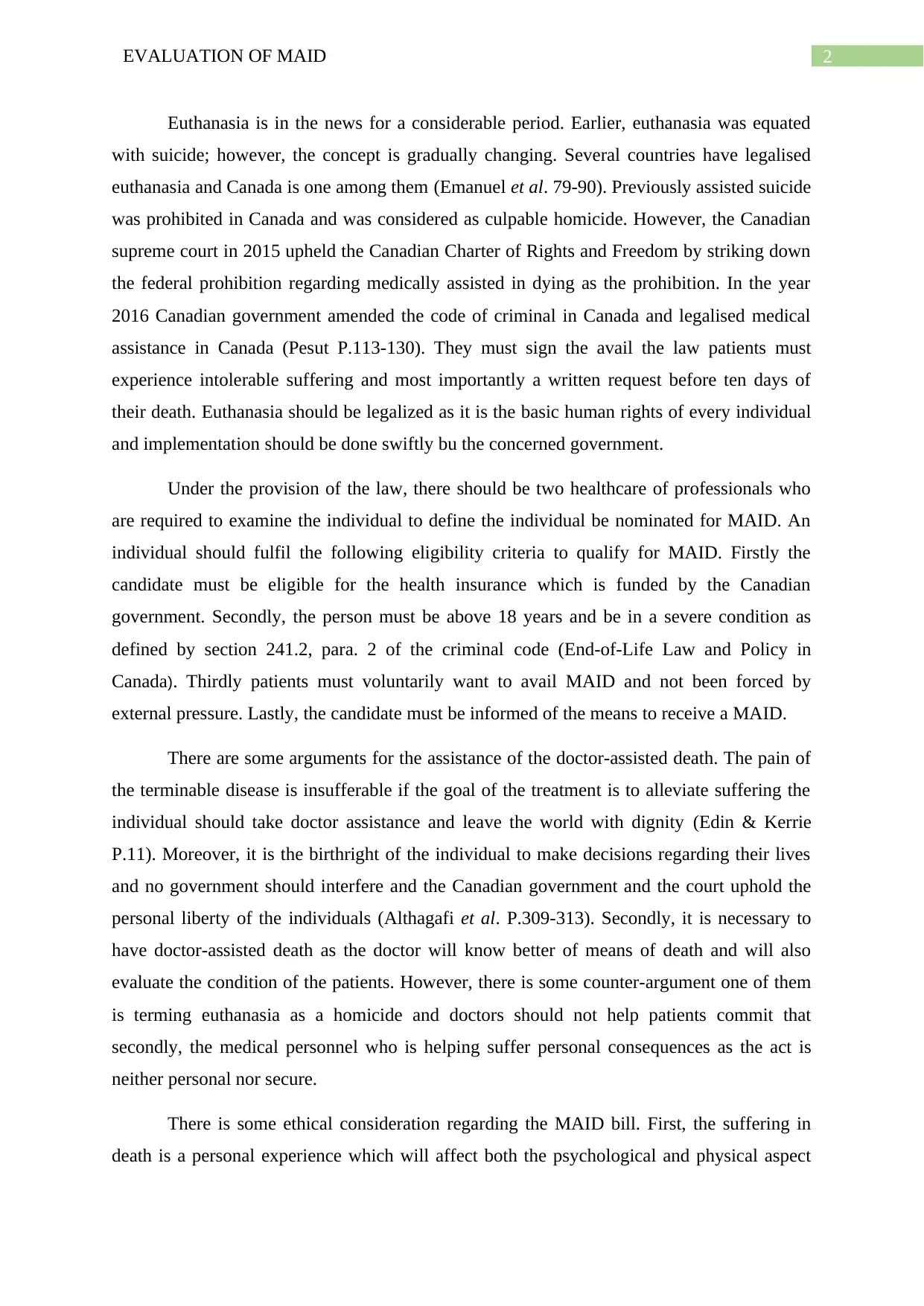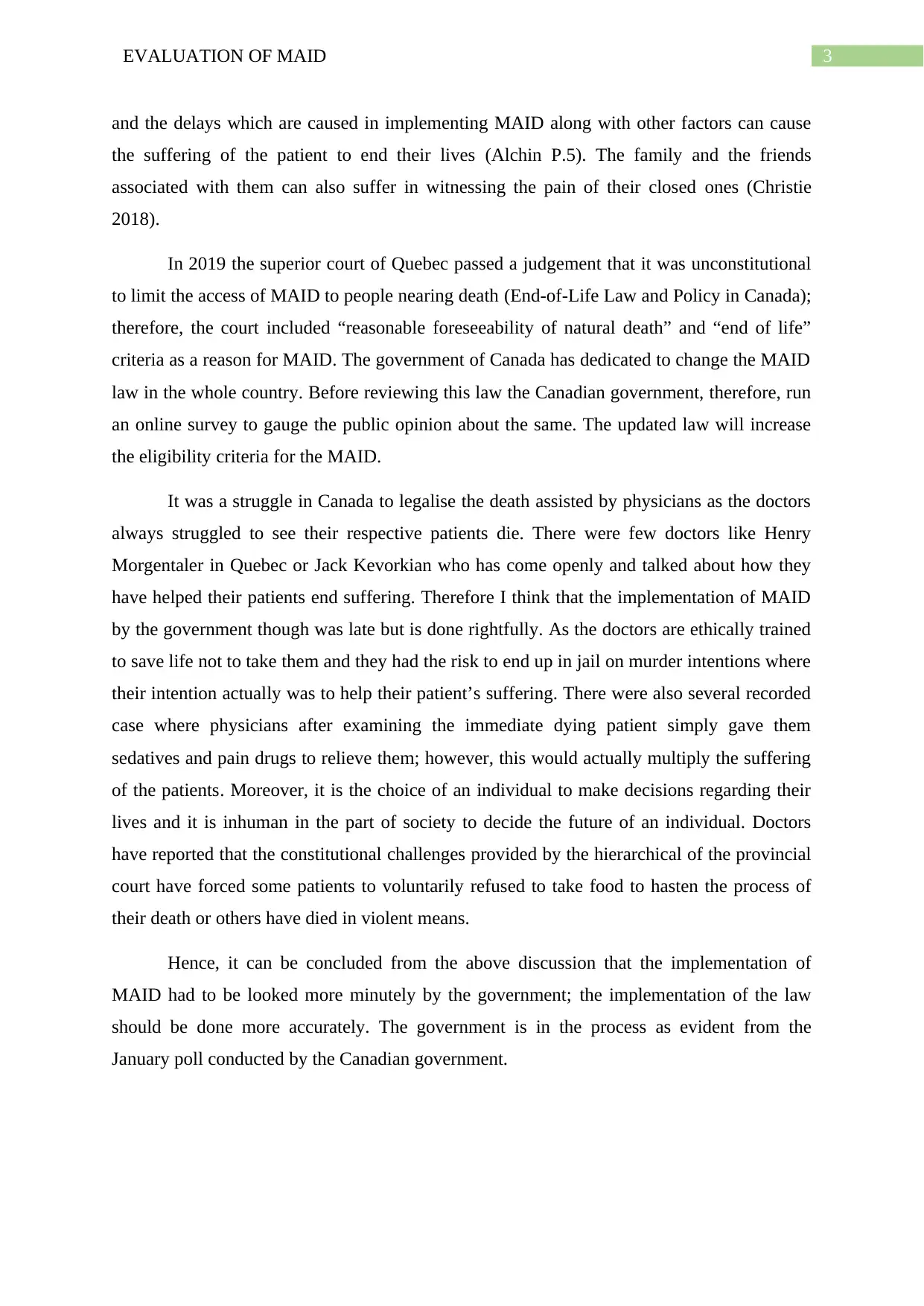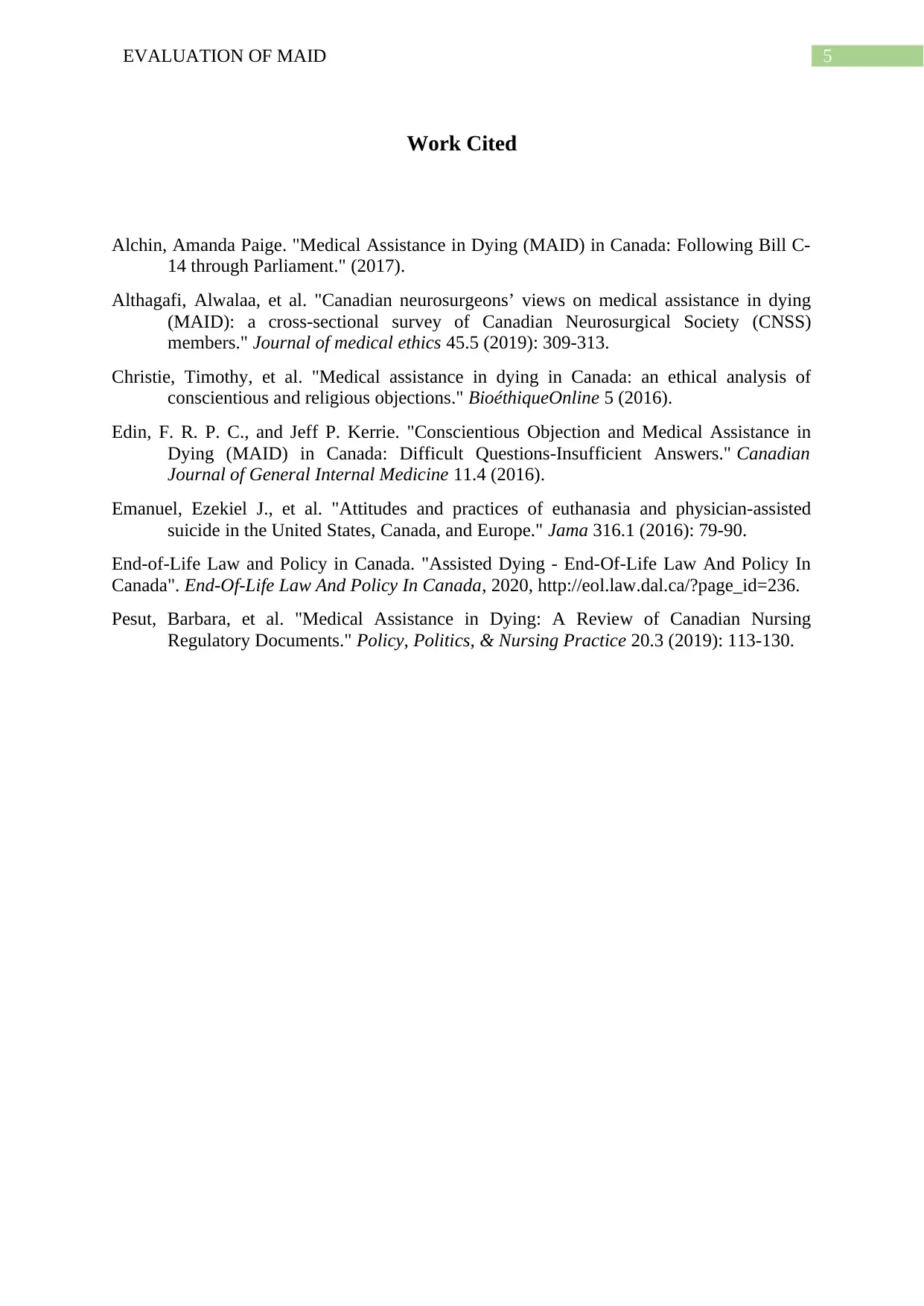Evaluation of MAID: Legal and Ethical Considerations in Canada
VerifiedAdded on 2022/08/21
|5
|1204
|8
Essay
AI Summary
This essay provides an evaluation of Medical Assistance in Dying (MAID) in Canada, examining its legal and ethical implications. The essay begins with a brief overview of the history of euthanasia and assisted suicide in Canada, highlighting the legal changes that have occurred since 2015, including the legalization of MAID. It outlines the eligibility criteria for MAID, including requirements related to health insurance, age, voluntary consent, and informed decision-making. The essay then presents arguments for and against MAID, including the alleviation of suffering and the upholding of individual rights, while also addressing counter-arguments related to the sanctity of life and the role of medical professionals. It discusses ethical considerations, such as the psychological impact on patients and their families, and the importance of accurate implementation of the law. The essay references the Canadian government's efforts to refine MAID legislation and concludes that while implementation was delayed, it was ultimately a justified measure. The author references court decisions, public surveys, and the perspectives of medical professionals to support their evaluation of MAID. The essay is well-researched and incorporates a variety of sources to support its claims, providing a comprehensive analysis of this complex topic.
1 out of 5












![[object Object]](/_next/static/media/star-bottom.7253800d.svg)